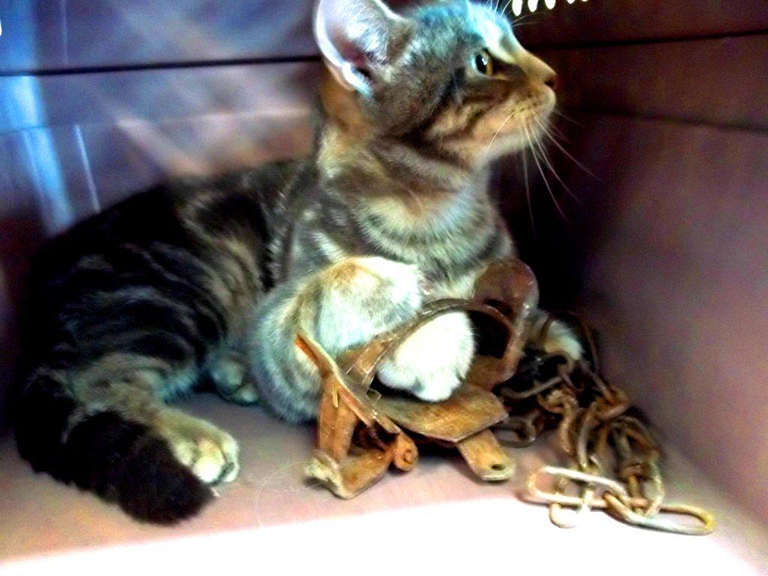
Yet every day, animals are killed in this manner. Not only is it perfectly acceptable under government regulations, it is expected. The manner in which a wild animal – be it a mouse, a raccoon, a coyote or a beaver – is trapped and eventually dispatched is considered cruel for a domestic animal, but not for wildlife.
The question is, why?
The Criminal Code is quite clear on its definition of cruelty:
445.1(1)Every one commits an offence who
(a)wilfully causes or, being the owner, wilfully permits to be caused unnecessary pain, suffering or injury to an animal or a bird;
(b)in any manner encourages, aids or assists at the fighting or baiting of animals or birds;
(c)wilfully, without reasonable excuse, administers a poisonous or an injurious drug or substance to a domestic animal or bird or an animal or a bird wild by nature that is kept in captivity or, being the owner of such an animal or a bird, wilfully permits a poisonous or an injurious drug or substance to be administered to it;
(d)promotes, arranges, conducts, assists in, receives money for or takes part in any meeting, competition, exhibition, pastime, practice, display or event at or in the course of which captive birds are liberated by hand, trap, contrivance or any other means for the purpose of being shot when they are liberated; or
(e)being the owner, occupier or person in charge of any premises, permits the premises or any part thereof to be used for a purpose mentioned in paragraph (d).
Clearly, causing pain, suffering or injury to an animal is a no-no, which is why cases of animal cruelty are obvious when seen by the public. And perhaps that’s why trapping isn’t considered cruelty under this law – it isn’t seen by the public.
Frequently, traps are placed in remote areas where the damage they cause isn’t visible. We know that animals are not necessarily injured by the trap closing, but by their intense efforts to get free. Any sentient being held without choice will struggle to become free. In the case of some animals, we know this means twisting and biting at their own limbs until they’re free. Even so-called ‘kill traps’ do not necessarily kill an animal instantly, leaving time for this struggle. Additionally, lengthy trap-check-times (up to one week for some traps in some jurisdictions) would leave a wild animal:
- Exposed to the elements;
- Unable to obtain food or water; and,
- At the mercy of predatory animals (or competitors).
When a trapper finally does return, if the animal has not died already, they are strangled, stomped or bludgeoned to death. Only on occasion, when fur quality is not of consequence, is a quick gunshot used.
All of these are against the Criminal Code of Canada’s definition of cruelty. All of these would be taken into court and result in convictions if conducted against a dog or cat. All of these are simply inhumane, cruel facts of the trapping industry.
Why is this acceptable? Because it’s not visible. But with your help, we can show the rest of Canada the horrific truth. And someday – and that day may come sooner than you believe – all animals, regardless of species, will be safe from inhumane traps.
Photo provided by the Montreal SPCA

